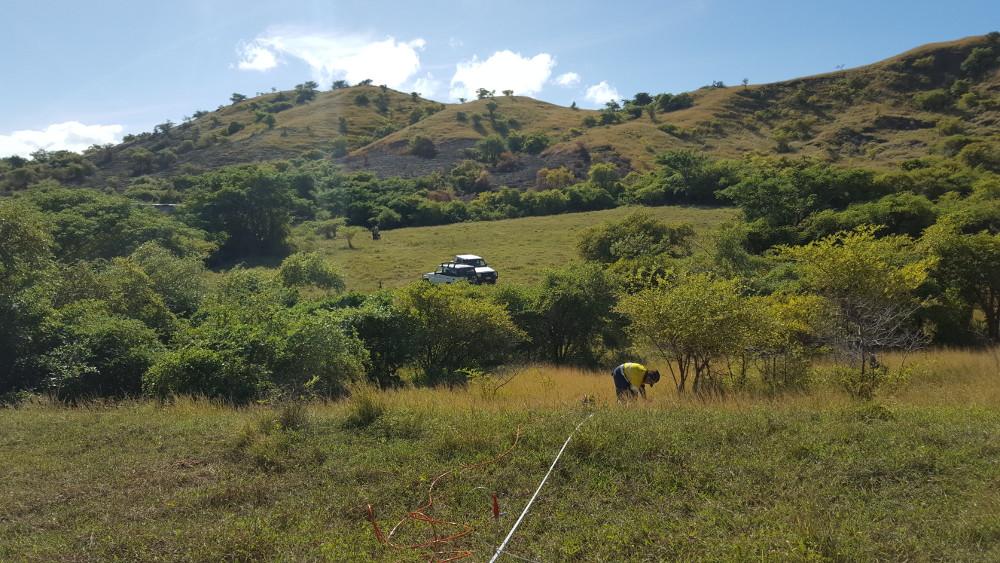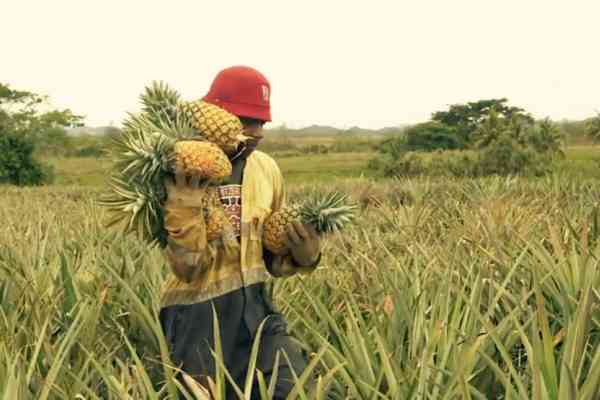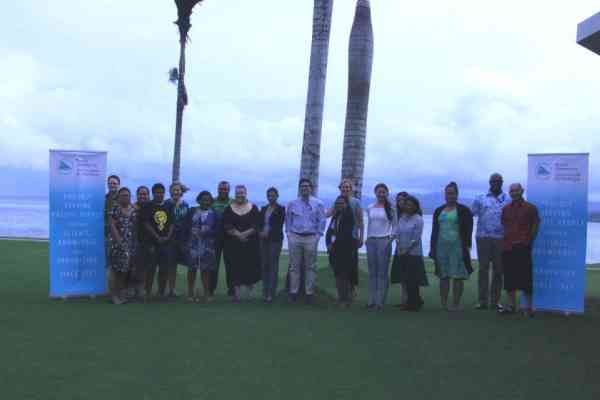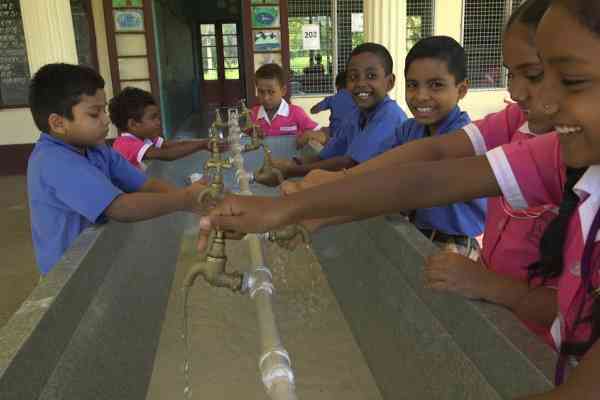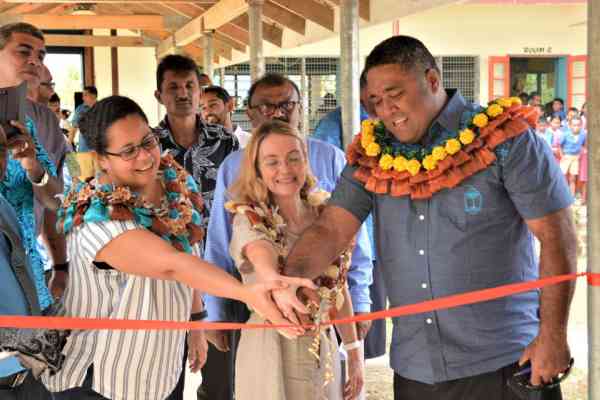People residing in two drought-prone sugarcane areas on Fiji’s main island, Viti Levu, are a step closer to accessing more reliable water supplies, following the recent completion of Hydrogeological surveys. The surveys, conducted by a Water Resources team from the Pacific Community’s Geoscience Division have mapped new sources of underground water in Qerelevu (Ba) and Nanuku-Wailevu (Ra).
The initiative, funded by the European Union and implemented through the Pacific Community’s (SPC) Micro Projects Programme, was carried out near a number of communities who are yet to be connected to the Water Authority of Fiji network and have a history of water shortages.
“Access to safe, reliable water for drinking and farming is essential for healthy, productive communities. Due to the increased demand and the impact of extreme weather events, this access remains a challenge for some communities . Sources of groundwater can be tapped to help meet demand, but it takes expert knowledge, specialist equipment and sustainable management. The European Union is proud to support the process of turning these potential resources into a reality – now and for future generations,” said the Delegation of the European Union for the Pacific, Head of Economic and Social Issues, Coordination of Regional Programmes Section, Emmanuelle Guihenuf.
SPC’s Water Resources Adviser, Peter Sinclair said the surveys - which use sophisticated geophysical electrical resistivity equipment - have detected places where there are likely to be sources of fresh underground water that could be potentially tapped.
“The areas surveyed currently rely on a combination of collected rainwater, springs or shallow wells. During extended dry periods, collected rainfall is insufficient and the yield from the springs or shallow groundwater is reduced or dries up completely. Families and communities then rely upon water carting or sharing from those few neighbours with springs that maintain water flows,” Mr Sinclair said.
“Groundwater from deeper sources has the distinct advantage that it is less impacted by droughts and cyclones, and so it offers greater reassurance of a safe water supply. Under the Micro Project Programme’s philosophy of ‘build back better’, the information gained from these surveys will help these disaster-prone communities to become more resilient,” he added.
Identifying the sources of new water supplies is just the first step in the process but it is a significant one as the information can be used to develop future water supply systems as needed.
Pumping tests from the drilled bores would also need to be carried out. This would assess the volume and quality of water to ensure that the groundwater resource can be developed in a sustainable way and meet local needs.
“The best approach for ensuring safe and resilient water supply to rural areas is to work within the physical and social limitations of the communities for which the water supplies will be used, operated and maintained,” Mr Sinclair said.
Further surveys are planned for four selected communities in Ba, Tavua and Rakiraki later this year.
Media contact:
Martin Chong, MPP Project Coordinator, [email protected] or +679 337 9416
